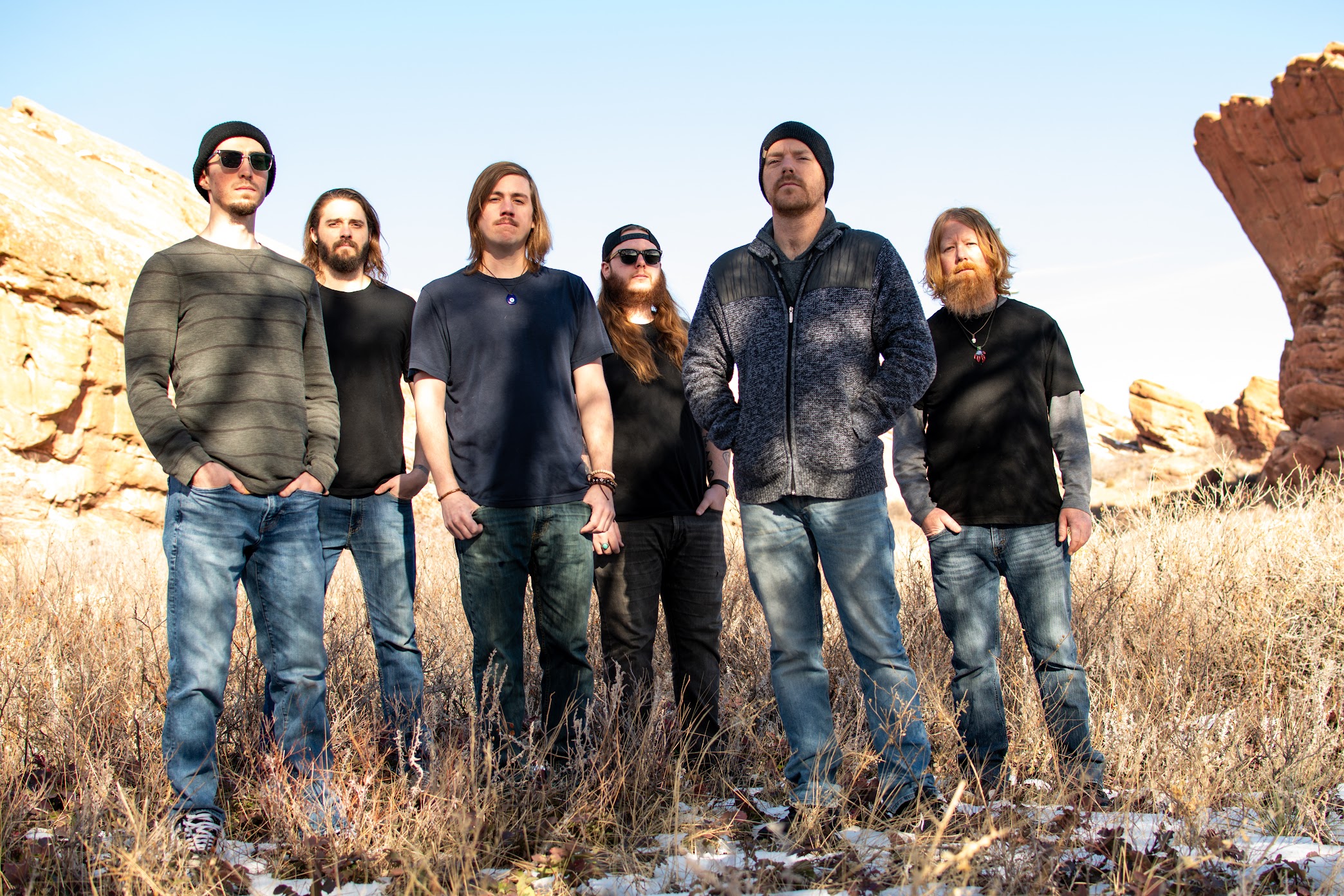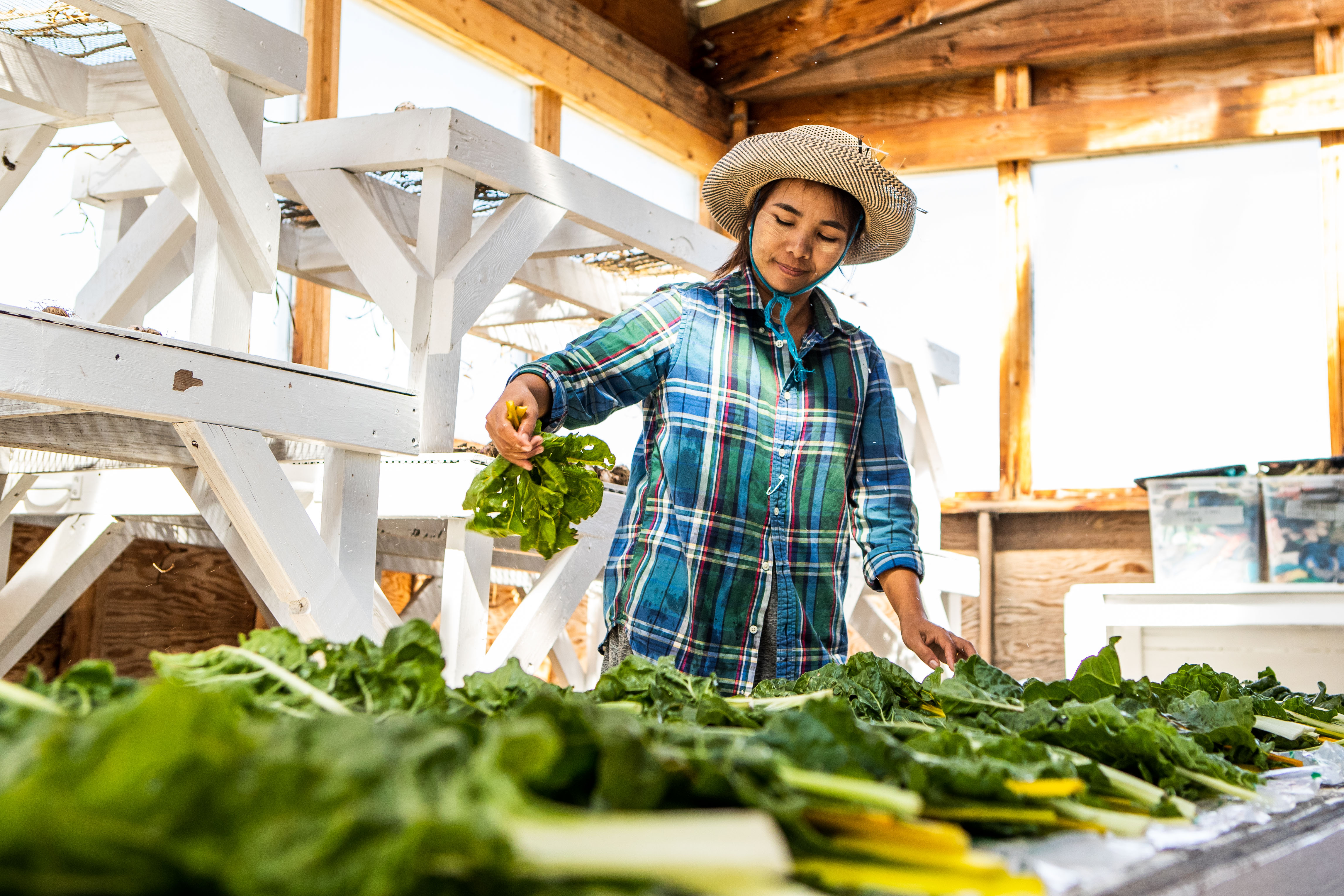During the summer on Aurora’s DeLaney Farm, you’ll find a grocery store’s worth of produce sprouting everywhere — summer squash, cucumber, bush beans, onions, hot peppers, tomatoes, winter squash, turnips, beets, radishes, swiss chard, kale, garlic, leeks and more. With more than 140 varieties of 30 different crops, the land is as diverse as it is abundant.
However, the summer bounty isn’t what makes DeLaney Farm the magical spot that it is. Instead, it’s the people. Inside the white, open-air barn, you’ll find a community of five refugee farmers — two from Burma, two from Somalia and one from Bhutan — working alongside Denver Urban Gardens and Project Worthmore employees Leah Roco and Heather DeLong.
They work together every week as a part of the two organizations’ joint Farmer Training Program, one that was created to help refugees find work and assistance in America. Through the Farmer Training Program, participants receive a salary, food, educational classes and hands-on training in exchange for working on the farm.
The Family
“We call this a ‘Farmer Training Program,’ but all of our farmers have been in this line of work for their entire lives, even back in their countries of origin,” DeLong explained. “The educational aspect focuses more on research and science-based agro-ecology.”
Classroom time includes lessons on irrigation, water conservation, sustainable agriculture, community building and navigating Colorado’s complicated agricultural landscape. This landscape is very different from where many of their participants have farmed previously. One of the women even joked, “In my country, you take seed, throw it and it grows.” Not so much in Colorado.
The five refugees currently employed at DeLaney Farm work there between 20 and 40 hours per week. A few — like Ahmed from Somalia and Thang Tee from Bhurma — are newer to the program, while Hamadi (also from Somalia) has worked on the farm in some capacity for the last 12 and a half years — the same amount of time as DeLong.
“Hamadi has been there with me every step,” DeLong said. “Even when we went through periods of time where we didn’t have the funding to pay him, he stayed and volunteered.”
“I didn’t care,” Hamadi added instantly. “I told her, ‘I’m not leaving. This is my farm.'”
Although every intern understands a base level of English, they are representing all different languages or dialects. DeLong said it’s more hand motions and demonstrations than words. In April, when the program starts each year, they bring in translators for interviews, but when May 1 comes around, the translators leave and harvest begins and lasts through October.
“There are these beautiful friendships that are formed here, even when people don’t speak the same language,” DeLong said. “Sometimes communication can be difficult, but we make it work.”
We watched this in action as they counted heads of garlic together for the upcoming CSA pick-up, laughing and taking turns counting in each other’s languages. It’s quiet at times, but it’s often interrupted by bouts of laughter from the group. That’s the universal language on DeLaney Farm.
“If I didn’t like it, I wouldn’t come here,” Hamadi said. “I’m happy every day.”
“It’s clear that a lot of people from the community feel connected to this land,” DeLong added. “They feel safe here. I don’t want to speak for anybody, but I’d imagine it’s very therapeutic to do a familiar act in an unfamiliar place.”
The Farm
DeLong came to DeLaney Farm through Denver Urban Gardens, after working in the Peace Corps for three and a half years in Africa.
“I was mostly interested in natural resource conservation when I first went to Mauritania, but I started working with the community gardens and knew that was it. It changed the course of my life.”
During her 12 years on the farm, the focus has shifted. Initially, the farm programming offered a public CSA for local WIC families in need of assistance. The families could volunteer a short amount of time in exchange for free, healthy produce from the farm. That grew to also include serving refugee families, something that was officially solidified by a partnership with non-profit Project Worthmore in 2016.
“At first people were only required to donate an hour of their time to get a share of the crops, but we quickly noticed something interesting,” she explained. “People didn’t want to go home after an hour. They wanted to stay as long as we would let them.”
This struck a chord with DeLong, who decided to change the internship program entirely.
“We previously had an internship for the public where university students and anyone could apply. A lot of time people come from privileged backgrounds, and they would come, intern, go get a job and that’s it,” she explained. “Two years ago, we decided we needed to do so much more to make this a meaningful experience. We decided we were only going to hire interns from the WIC community or refugees through Project Worthmore.”
Now, the farm offers a sold-out CSA program and sells to several Denver restaurants including Annette, Mercury Cafe, Beast & Bottle, Coperta and City ‘O City. The CSA always sells out, even with the groups stringent requirements for volunteering and commitment to the Project Worthmore causes outside of CSA pick-up.
The Future
The impact of DeLaney Farm on these individuals is clear, but DeLong said that although they’re proud of their progress, it still isn’t enough. Currently, they only have the funding to support their participants from April through October.
“I’m always asking, ‘What do we do at the end of the season?'” she said. “We want to get year-round employment for these people. I have a big vision of our farmers becoming the field coordinators, volunteer manager, CSA manager, restaurant coordinator. Everyone thrives in different areas, our volunteer program has about 1,000 people a season, but I want to extend beyond that.”
The entire Project Worthmore team is working tirelessly on fundraising to help these programs extend more months and to more people. Outside of the DeLaney Farm, the organization also offers English classes, job training, citizenship classes and dental care. Last year, they helped more than 800 refugee families in the area.
If you’re interested in learning more, volunteering or donating to Project Worthmore or DeLaney Farm, click here. They’re also hosting a fundraiser brunch on the farm with Snooze on August 11. To learn more and buy tickets for that, click here.
All photography by Kyle Cooper.





